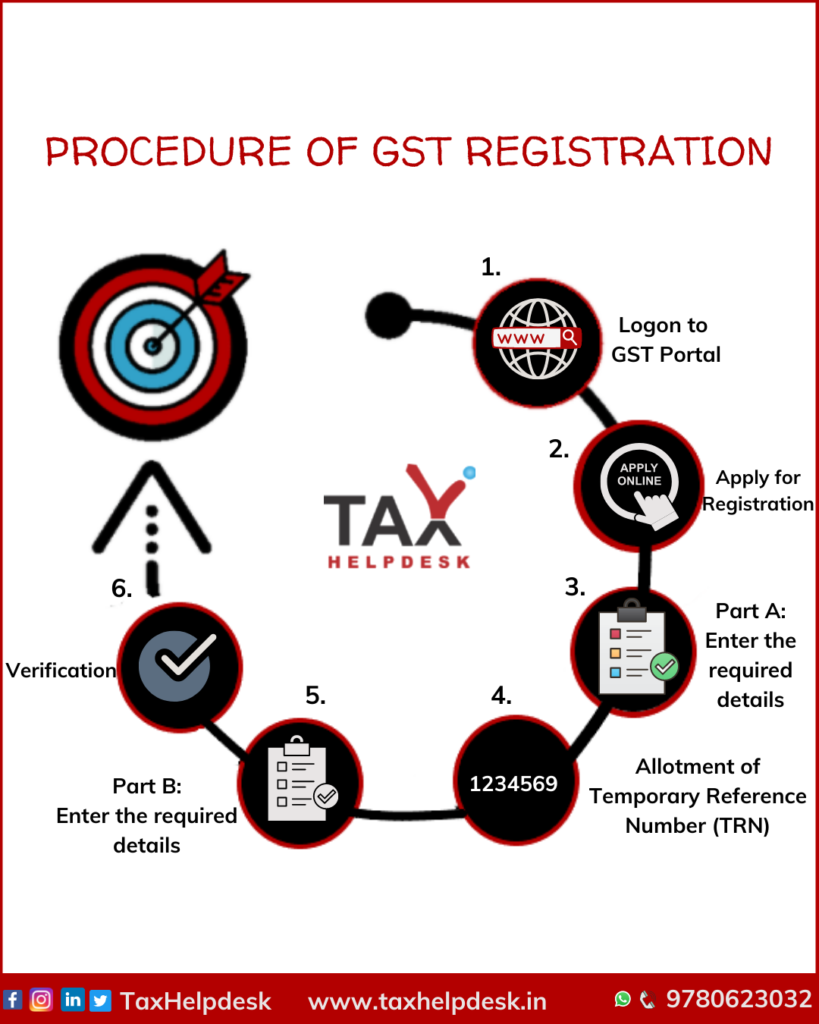Vital Overview to Singapore GST Registration for New Organizations
Browsing the Intricacies of GST Enrollment: Expert Tips and Best Practices for Smoother Compliance
From deciphering enrollment demands to harnessing technical devices for structured processes, the journey towards smoother GST conformity is multifaceted and nuanced. Stay tuned to reveal crucial approaches and insights that can assist organizations guide via the intricacies of GST registration with skill and confidence.
Understanding GST Enrollment Needs

Along with turnover thresholds, companies participating in interstate sales or providing taxable services may additionally be needed to register for GST, also if their turnover is listed below the prescribed restriction (Singapore GST Registration). Comprehending these demands and thresholds is crucial to avoid fines and make certain smooth operations within the legal framework
In addition, organizations must collect and prepare the required paperwork, such as evidence of identity, address, company incorporation, and savings account details, before starting the GST registration process. Failing to give exact details or meet the enrollment deadlines can cause fines or other legal consequences. Businesses ought to remain notified about the particular GST enrollment requirements suitable to their procedures to maintain compliance and avoid prospective problems.
Organizing Important Documents
Organizations beginning on the GST enrollment procedure need to carefully compile and arrange the necessary documents required for submission. The crucial records generally required for GST enrollment include proof of service registration or address, identity and consolidation evidence of business proprietors or partners, savings account details, proof of major area of service, and permission kinds. Making certain that these records are easily available and arranged can streamline the enrollment procedure and prevent hold-ups or beings rejected.
To properly organize necessary paperwork, organizations need to create a centralized system for keeping and classifying the required documents (Singapore GST Registration). Making use of electronic storage space solutions can help keep easy accessibility and make sure that papers are securely kept. In addition, establishing a list of all necessary records can work as a valuable tool to track what has actually been gathered and what is still needed for submission

Leveraging Innovation for Performance
Enhancing operational performance via technical assimilation is extremely important for modern-day services navigating the complexities of GST registration. One of the vital methods modern technology can assist in GST enrollment is with the usage of automated software services.
In addition, technology can help with seamless communication with tax obligation authorities. Online sites and communication devices make it possible for businesses to submit records, settle inquiries, and receive updates in an extra reliable fashion. This not just expedites the registration procedure however additionally helps in maintaining clear and trustworthy communication with the relevant authorities.
In addition, cloud-based storage space services supply a protected platform for businesses to shop and accessibility their financial information, making certain conformity with my website GST record-keeping needs. By centralizing information storage and automating processes, businesses can enhance their useful site overall efficiency and precision in GST enrollment treatments.
Proactive Conformity Monitoring

To make certain effective proactive compliance monitoring, organizations should develop durable inner controls, conduct periodic audits, and leverage automation devices for real-time monitoring of GST purchases. Normal training sessions for employees on GST compliance requirements can likewise help in creating a culture of compliance within the organization. Additionally, engaging with tax specialists or experts can supply useful insights and assistance on browsing complicated GST policies.
Engaging With Expert Experts
Engaging experienced tax consultants can significantly strengthen a company's understanding and compliance with intricate GST regulations. Specialist experts bring a riches of knowledge and experience to the table, helping organizations navigate the intricacies of GST registration easily. By leveraging their proficiency, companies can guarantee accurate filings, decrease the threat of mistakes, and remain updated with the most recent regulative adjustments.
When engaging with specialist professionals, it is necessary to choose professionals with a solid record in GST compliance (Singapore GST Registration). Try to find professionals that have a deep understanding of the pertinent regulations and laws, as well as experience functioning with companies in your industry. Efficient communication is type in this partnership, so make certain to plainly define your assumptions and develop regular touchpoints to review progress and resolve any issues
Furthermore, professional consultants can provide beneficial understandings and advice on optimizing your tax technique, identifying potential cost-saving opportunities, and simplifying your conformity processes. Generally, spending in specialist consultancy solutions can go a lengthy means in ensuring smoother GST conformity and staying clear of expensive blunders.
Verdict
Finally, navigating the intricacies of GST enrollment requires a detailed understanding of the demands, company of see this here necessary paperwork, leveraging technology for effectiveness, proactive conformity surveillance, and engagement with expert consultants. By following these ideal practices, organizations can guarantee smoother compliance with GST laws and stay clear of potential fines or fines. It is important to remain notified, positive, and diligent in handling GST registration to maintain compliance and maintain monetary stability.
To guarantee compliance with tax policies, services should completely recognize the elaborate demands for GST registration. Product and Solutions Tax (GST) is a value-added tax imposed on most products and solutions in a nation, making it critical for companies to register for GST to stay clear of legal effects.In addition, companies have to gather and prepare the needed documentation, such as proof of identification, address, organization unification, and bank account details, prior to initiating the GST enrollment procedure. Organizations must stay notified concerning the details GST enrollment requirements appropriate to their operations to maintain compliance and avoid possible problems.
The crucial records generally required for GST registration include proof of service enrollment or identification, address and unification evidence of the company owners or partners, bank account information, proof of principal place of organization, and authorization types.